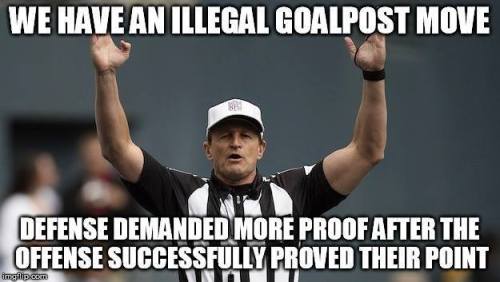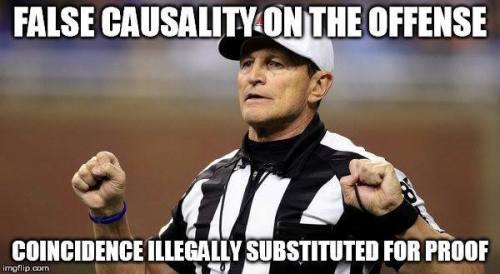Beginning To Suspect That If I Ever Want To Have A Published Novel I Will Have To Actually Write A Novel,
beginning to suspect that if I ever want to have a published novel I will have to actually write a novel, which is frankly ghoulish
More Posts from Little-infj-cafe and Others

Each week (or so), we'll highlight the relevant (and sometimes rage-inducing) news adjacent to writing and freedom of expression. This week:
Inkitt’s AI-powered fiction factory
Inkitt started in the mid-2010s as a cozy platform where anyone could share their writing. Fast forward twenty twenty-fuckkkkk, and like most startups, it’s pivoted hard into AI-fueled content production with the soul of an algorithm.

Pictured: Inkitt preparing human-generated work for an AI-powered flume ride to The Unknown.
Here’s how it works: Inkitt monitors reader engagement with tracking software, then picks popular stories to publish on its premium app, Galatea. From there, stories can get spun into sequels, spinoffs, or adapted for GalateaTV… often with minimal author involvement. Authors get an undisclosed cut of revenue, but for most, it’s a fraction of what they’d earn with a traditional publisher (let alone self-publishing).
“'They prey on new writers who have no idea what they’re doing,' said the writer of one popular Galatea series."
Many, many authors have side-eyed or outright decried the platform as inherently predatory for years, due to nebulous payout promises. And much of the concern centers on contracts that don’t require authors’ consent for editorial changes or AI-generated “additions” to the original text.
Now, Inkitt has gone full DiSrUpTiOn, leaning heavily on generative AI to ghostwrite, edit, generate audiobook narration, and design covers, under the banner of “democratizing storytelling.” (Bullshit AI? In my democratized storytelling platform? It’s more likely than you think.)

Pictured: Inkitt’s CEO looking at the most-read stories.
But Inkitt’s CEO doesn’t seem too concerned about what authors think: “His business model doesn’t need them.”

The company recently raised $37 million, with backers including former CEOs of Sony, Penguin, and HarperCollins, proving once again that publishing loves a disruptor… as long as it disrupts creatives, not capital. And more AI companies are mushrooming up to chase the same vision: “a vision of human-created art becoming the raw material for AI-powered, corporate-owned content-production machines—a scenario in which humans would play an ever-shrinking role.”
(Not to say we predicted this, but…)
Welcome to the creator-industrial complex.

Publishers to AI: Stop stealing our stuff (please?)
Major publishers—including The New York Times, The Washington Post, The Guardian, and Vox Media—have launched a "Support Responsible AI" campaign, urging the U.S. government to regulate AI's use of copyrighted content.
Like last month's campaigns by the Authors Guild and the UK's Society of Authors, there's a website where where you can (and should!) contact your representatives to say, “Hey, maybe stop letting billion-dollar tech giants strip-mine journalism.”
The campaign’s ads carry big mood slogans like “Stop AI Theft” and “AI Steals From You Too” and call for legislation that would force AI companies to pay for the content they train on and clearly label AI-generated content with attribution. This follows lobbying by OpenAI and Google to make it legal to scrape and train on copyrighted material without consent.
The publishers assert they are not explicitly anti-AI, but advocate for a “fair” system that respects intellectual property and supports journalism.
But… awkward, The Washington Post—now owned by Jeff Bezos—has reportedly already struck a deal with OpenAI to license and summarize its content. So, mixed signals.
Still, as the campaign reminds us: “Stealing is un-American.”
(Unless it’s profitable.)

#WarForever
We at Ellipsus love a good meme-turned-megaproject. Back in January, the-app-formerly-known-as-Twitter user @lolt64 tweeted a cryptic line about "the frozen wastes of europa,” the earliest reference to the never-ending war on Jupiter’s icy moon.
A slew of bleak dispatches from weary, doomed soldiers entrenched on Europa’s ice fields snowballed (iceberged?) into a sprawling saga, yes-and-ing with fan art, vignettes, and memes under the hashtag #WarForever.
It’s not quite X’s answer to Goncharov: It turns out WarForever is some flavor of viral marketing for a tabletop RPG zine. But the internet ran with it anyway, with NASA playing the Scorcese of the stars.

In a digital hellworld increasingly dominated by AI slopification, data harvesting, and “content at scale,” projects like WarForever are a blessed reminder that creativity—actual, human creativity—perseveres.
Even on a frozen moon. Even here.

Let us know if you find something other writers should know about, (or join our Discord and share it there!)
- The Ellipsus Team xo

When Orpheus looked back at Eurydice , maybe it was not solely because he yearned to look at his beloved again.Maybe when he heard her footfalls, he was afraid she would slip away again like the last time when the snakes bit her.Humanity’s greatest battle has always lied in the quest of not succumbing to the ghost of our regrets. At the end , all of us are doomed to become doubtful of the universe.We all look back everyday, over and over again. Just to make sure their shadow is still behind us.Just to see if we grasped their hand tighter this time against the clutches of evil. I have already lost you before , can I atleast look and memorize the shades of your skin incase fate repeats itself ?
there is a cat in my lap. i know the cat (lives in this house. is my dad’s cat) but i do not at all remember when the cat got in my lap. just fucking. appeared apparently. i looked down and cat was there.

me reading my writing and wondering how the most incoherent sentence somehow was kept through all these rounds of editing
Sometimes the person in the mirror seems so… strange
It feels like it’s not me
My body
My soul
It’s not me
It’s not who I want to be
So how can my reflection be me?
So I stare at my reflection
Wondering who it is staring back
hello! i'm trying to write a manipulative/cunning character that uses his charm to get what he wants, but i'm unsure how to go about it without being too overt. he basically acts all polite and uses peoples' inherent biases (like how they are more likely to listen to or trust someone who's conventionally attractive)
i'm also struggling to come up with instances where he'd use those skills. surely he can't just walk up to somebody and say something out of nowhere haha
thank you for your time!
That’s such a fun character to write! For subtle manipulation, focus on how he frames things—he never demands, just suggests. He compliments before slipping in a request, or pretends to confide in someone to earn their trust.
Manipulation has three core tactics:
Mirroring – He subtly copies people's tone, body language, or opinions to build fast rapport. People feel more at ease when they see themselves in someone else.
Framing choices – He never gives direct orders. Instead, he offers two options—both benefiting him—but makes one seem like the “better” or more moral choice.
Playing the victim or the hero – Depending on what the situation calls for, he knows when to act vulnerable to gain sympathy, or when to seem competent and generous to earn loyalty.
As for scenes: think small but calculated moments—like offering help so he can later call in a favor, or using flattery to get into private conversations. His charm should feel effortless, like everything he does just naturally benefits him. Let people want to say yes to him, because why wouldn't they? He'd never do anything wrong!
Use foreshadowing and drop hints through your scenes too, like:
He helps a powerful person in public (small act, big praise), later using that goodwill to get access somewhere.
He praises someone’s intelligence just before suggesting a risky plan—making them feel clever for agreeing.
He eavesdrops, then later "guesses" something personal about someone to seem insightful and trustworthy.
Basically, his charm is a tool, not a mask—it’s always used with purpose.
One character that comes to mind for inspo is Tom Riddle. I wrote a Tom Riddle fanfic series for like 2 years and crafting scenes where everyone thinks he's perfect while internally he's looking down on all of them was so so fun! Some personal tips from that experience:
Have someone who knows the truth! The one person who doesn't fall for his charm no matter what he tries, make his eye twitch and smile strain as he tries to maintain the farce of perfection whenever this person calls him out in public.
Internal monologue. It's important to make sure your readers get that this guy doesn't actually like the random girl he flirted with to get access to the professor's records. Or that the group of friends that constantly swarm him are really just nuisances in his eyes.
Make things easy, but not too easy. Have people who easily fall for the physical charm, and others whose trust he gains by making them let their guard down. The sceptic trusts him because he's apparently part of the same tiny dog club as them, the girl who falls for no one feels her heart flutter by how 'real and kind' he was during the moment they 'accidentally' met outside school.
I hope this helps!
Hey i’m a fashion design student so i have tons and tons of pdfs and docs with basic sewing techniques, pattern how-tos, and resources for fabric and trims. I’ve compiled it all into a shareable folder for anyone who wants to look into sewing and making their own clothing. I’ll be adding to this folder whenever i come across new resources
https://drive.google.com/drive/folders/16uhmMb8kE4P_vOSycr6XSa9zpmDijZSd?usp=sharing
Senior letters are so hard to write because of how blurry my vision gets with the tears.
The worry that this is all going to end and I’m never going to talk to them again. The sadness of knowing that our roads are going down different paths.
The pride I feel of how far they’ve come and how many different adventures we’ve gone on. The inside jokes. The stories. The lore.
The vulnerable moments. The good times. The bad times.
And I have to summarize all of that and include well wishes in a single letter????
My heart is going to explode. I love every one of these people so much.







So I just found the most useful photo album in existence for tumblr arguments

The words they're afraid of.
(Read on our blog.)
The recently appointed Department of Defense head Pete Hegseth (formerly Fox News pundit, perpetually soused creepy uncle, and current group chat leaker of classified intel) banned images of the Enola Gay from the Pentagon’s website for the offense of “DEI” language. In keeping with the far right’s stated war on anything vaguely resembling diversity, equity and inclusion, even historical photos are up for cancellation. When a literal weapon of mass destruction is censored for being a bit fruity under the Trump administration’s war against inconvenient truths, what exactly is left untouched?
This is clown show stuff, but the stakes are far from funny. While some might be hesitant to compare the current administration to the very worst history has to offer, we can at least all agree that they are dyed-in-the-wool grammar Nazis. Policing language has been the objective of the MAGA culture war long before Project 2025’s debut—the wave of book bans orchestrated by astroturf movements like Moms for Liberty, and Florida’s 2022 Don’t Say Gay bill have already had a profound effect in the arena of free speech and freedom of expression (despite the far right’s long tradition of doublespeak performative free-speech martyrdom to the contrary). Don’t Say Gay ostensibly targeted K-3 education, but LGBT+ content at all levels of education (and beyond) was either quietly censored or entirely preempted in practice. The results were not just a war on so-called ideology, or words alone—but on reality and essential freedoms.
Now, words as innocuous and important as racism, climate change, hate speech, prejudice, mental health, and inequality are targeted as subversive. Entire concepts are being vanished from government institutions, scrubbed not only from descriptions but from metadata, search indexes, and archival frameworks.
If you don’t name a thing, does it exist?
These words are as numerous as they are generic: women, race, Black, immigrants, multicultural, gender, injustice. But what is painfully unserious is also particularly dangerous in its real-world consequences. The process of controlling words is a well-worn authoritarian tendency. Fifty-two universities are now under investigation as part of the President's effort to curb “woke” research and thought crimes. Institutions are being coerced to comply with a nebulous set of ideological demands, or face budgetary annihilation. That means cutting funding for entire departments, slashing financial aid, defunding scientific grants, and pressuring faculty to self-censor.
The possibilities for censorship extend far and wide—interfering, by extension, in everything from reproductive healthcare programs, to libraries and museums. The Trump administration’s proposed budget slashing all federal funding for libraries, including the Institute of Museum and Library Services, will effectively gut an infrastructure that supports over 100,000 libraries and museums across the country—community centers, educational lifelines, internet access points, and archives of marginalized histories (starting with the Smithsonian Institution).
When you erase access, you erase participation. And when you erase participation, you erase people, and the means by which future generations might even learn they existed. A culture that cannot remember is a culture that cannot resist.
The erasure is, yet again, unsurprisingly targeted at minorities and LGBT+ people. The National Parks Service quietly revised the Stonewall Monument’s website to remove references to transgender people—a fundamental part of the original protests. Not an oversight, not a mistake, but a deliberate excision—one point in a wider plan of erasure depicted in stark detail in Project 2025, a blueprint to dismantle civil rights, defund LGBT+-related healthcare, and rewrite history from the ground up.
Dehumanization by deletion—welcome to the reactionary resurgence of doubleplusungood governance. In Trumpland, words are weapons—but not in the way they intend. Their fear of language betrays its power; that’s why they’re trying so hard to police it.
Words hurt them.
Hurt them back.

- the Ellipsus Team
-
 iwishicanlivemydreams liked this · 3 weeks ago
iwishicanlivemydreams liked this · 3 weeks ago -
 idkhowtomakethis liked this · 3 weeks ago
idkhowtomakethis liked this · 3 weeks ago -
 corvidaerook reblogged this · 3 weeks ago
corvidaerook reblogged this · 3 weeks ago -
 idoltina liked this · 3 weeks ago
idoltina liked this · 3 weeks ago -
 themontess reblogged this · 3 weeks ago
themontess reblogged this · 3 weeks ago -
 slutforpesto reblogged this · 3 weeks ago
slutforpesto reblogged this · 3 weeks ago -
 slutforpesto liked this · 3 weeks ago
slutforpesto liked this · 3 weeks ago -
 artemislosthunter reblogged this · 3 weeks ago
artemislosthunter reblogged this · 3 weeks ago -
 artemislosthunter liked this · 3 weeks ago
artemislosthunter liked this · 3 weeks ago -
 warmdayssweetnights liked this · 3 weeks ago
warmdayssweetnights liked this · 3 weeks ago -
 awkward-potatocat-blog liked this · 3 weeks ago
awkward-potatocat-blog liked this · 3 weeks ago -
 stor-133 liked this · 3 weeks ago
stor-133 liked this · 3 weeks ago -
 comfy-spot reblogged this · 3 weeks ago
comfy-spot reblogged this · 3 weeks ago -
 mothmanscat reblogged this · 3 weeks ago
mothmanscat reblogged this · 3 weeks ago -
 mothmanscat liked this · 3 weeks ago
mothmanscat liked this · 3 weeks ago -
 blighted-slyph liked this · 3 weeks ago
blighted-slyph liked this · 3 weeks ago -
 witchitybear reblogged this · 3 weeks ago
witchitybear reblogged this · 3 weeks ago -
 witchitybear liked this · 3 weeks ago
witchitybear liked this · 3 weeks ago -
 yonderlight liked this · 3 weeks ago
yonderlight liked this · 3 weeks ago -
 natethetatertot liked this · 3 weeks ago
natethetatertot liked this · 3 weeks ago -
 hauntedkeys reblogged this · 3 weeks ago
hauntedkeys reblogged this · 3 weeks ago -
 miss-wander-around reblogged this · 3 weeks ago
miss-wander-around reblogged this · 3 weeks ago -
 raspberrybluejeans reblogged this · 3 weeks ago
raspberrybluejeans reblogged this · 3 weeks ago -
 thelibrarycat reblogged this · 3 weeks ago
thelibrarycat reblogged this · 3 weeks ago -
 cultofcreatures liked this · 3 weeks ago
cultofcreatures liked this · 3 weeks ago -
 weisse-rose liked this · 3 weeks ago
weisse-rose liked this · 3 weeks ago -
 canonbiwonderwoman reblogged this · 3 weeks ago
canonbiwonderwoman reblogged this · 3 weeks ago -
 edenavari liked this · 3 weeks ago
edenavari liked this · 3 weeks ago -
 feralfennecfox reblogged this · 3 weeks ago
feralfennecfox reblogged this · 3 weeks ago -
 foreverwithoutyou reblogged this · 3 weeks ago
foreverwithoutyou reblogged this · 3 weeks ago -
 mcjossic liked this · 3 weeks ago
mcjossic liked this · 3 weeks ago -
 hearthmistress liked this · 3 weeks ago
hearthmistress liked this · 3 weeks ago -
 dazaibutblk liked this · 3 weeks ago
dazaibutblk liked this · 3 weeks ago -
 fandommusings reblogged this · 3 weeks ago
fandommusings reblogged this · 3 weeks ago -
 chronic-cats reblogged this · 3 weeks ago
chronic-cats reblogged this · 3 weeks ago -
 temporalschism reblogged this · 3 weeks ago
temporalschism reblogged this · 3 weeks ago -
 renegadeoboe liked this · 3 weeks ago
renegadeoboe liked this · 3 weeks ago -
 pajamafish reblogged this · 3 weeks ago
pajamafish reblogged this · 3 weeks ago -
 skeletoninthemelonland liked this · 3 weeks ago
skeletoninthemelonland liked this · 3 weeks ago -
 gayfrogswithhats reblogged this · 3 weeks ago
gayfrogswithhats reblogged this · 3 weeks ago -
 gayfrogswithhats liked this · 3 weeks ago
gayfrogswithhats liked this · 3 weeks ago -
 oldgirlyoungcrone reblogged this · 3 weeks ago
oldgirlyoungcrone reblogged this · 3 weeks ago -
 smallratboy reblogged this · 3 weeks ago
smallratboy reblogged this · 3 weeks ago -
 smallratboy liked this · 3 weeks ago
smallratboy liked this · 3 weeks ago -
 pizzaisyummy liked this · 3 weeks ago
pizzaisyummy liked this · 3 weeks ago -
 girlofthemirror liked this · 3 weeks ago
girlofthemirror liked this · 3 weeks ago -
 thelovegiver-again liked this · 3 weeks ago
thelovegiver-again liked this · 3 weeks ago -
 snivel1 liked this · 3 weeks ago
snivel1 liked this · 3 weeks ago -
 swamp-deity liked this · 3 weeks ago
swamp-deity liked this · 3 weeks ago

Hello! Welcome to my silly little corner of the internet.
233 posts